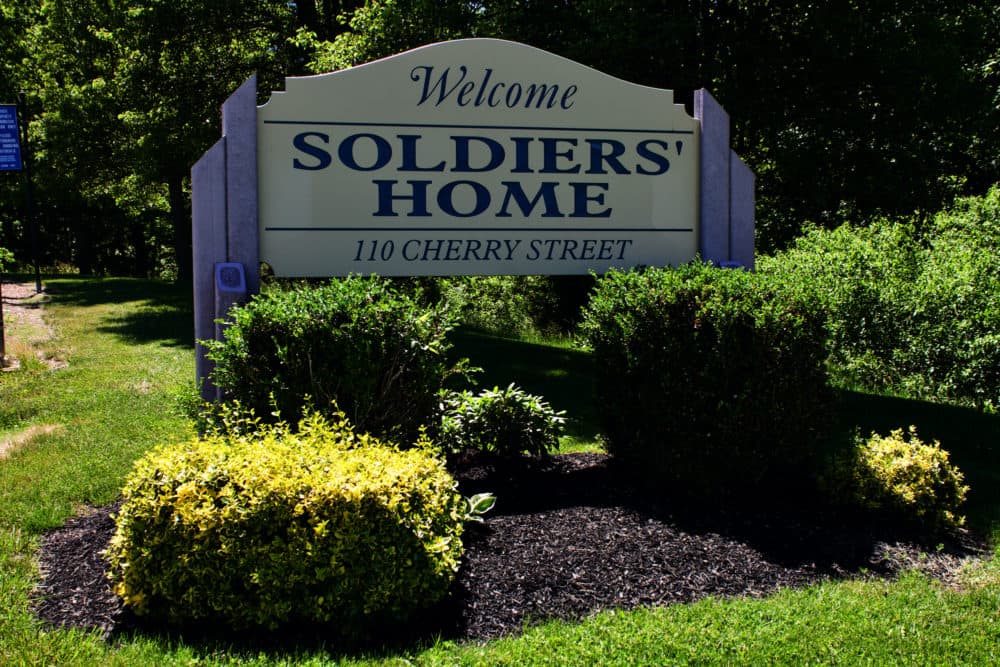Advertisement
Senate vote inches state closer to Soldiers' Home changes

Exactly two years after Gov. Charlie Baker declared a COVID-19 state of emergency in Massachusetts, the Senate approved a suite of management and oversight reforms to address two state-run veterans' homes where they say more than 100 residents died amid outbreaks of the highly infectious virus.
The Senate voted 40-0 to approve legislation crafted from recommendations a legislative committee made after studying the spring 2020 tragedy at the Holyoke Soldiers' Home, which led to an unprecedented lawsuit and the resignation of the Baker administration's veterans' services secretary, and broader challenges both state-run facilities faced.
Final passage of the legislation, which addresses findings in a report filed 10 months ago and builds on a bill filed six months ago, appears to remain out of immediate reach amid significant differences in the House and Senate approaches.
"In the early days of the pandemic, the commonwealth failed to protect 78 veterans at the Holyoke Soldiers' Home and 31 veterans at the Chelsea Soldiers' Homes who were in our care and died during the rampant COVID-19 outbreak," said Senate Ways and Means Committee Chair Sen. Michael Rodrigues. "As we approach the second anniversary of this tragic event, I am proud of this chamber for its thoughtful work to ensure that moving forward, our veterans receive the care they deserve and that these systematic failures never happen again."
Targeting breakdowns in communication and poor decision-making that contributed to the high-profile crisis in Holyoke, the Senate bill would overhaul the chain of command from the hallways of each state-run soldiers' home up to the governor, establish new inspection and care standards requirements, create an ombudsperson and a hotline to handle complaints and concerns at the homes, and mandate both facilities to have trained experts in infection control and emergency preparedness on hand.
The Senate bill would elevate the secretary of veterans' services, who currently falls under the umbrella of the Executive Office of Health and Human Services, to become its own full Cabinet position, opening up more direct access to the governor. Under a Minority Leader Bruce Tarr amendment the Senate adopted unanimously, the secretary would themselves need to be a veteran.
That restructuring, first proposed by lawmakers who helmed the Holyoke investigation, is one of the most significant differences with the House. The version representatives approved 156-1 last month — where the bill's original sponsor, Rep. Linda Dean Campbell, voted present rather than in support — omits any language moving the secretary of veterans' services into the Cabinet.
Both bills call for creation of a statewide Massachusetts Veterans' Homes Advisory Council and some sort of local panel, either boards of trustees at the facility in the House legislation or regional councils in the Senate's version.
Advertisement
The House and Senate bills assign different responsibilities to those groups, however. The House bill calls for the statewide council to appoint superintendents after reviewing nominations submitted by each home's board of trustees and to remove superintendents on the recommendation of the governor or board of trustees.
In the Senate legislation, both the statewide council and regional councils would make recommendations for hiring and firing superintendents to the secretary of veterans' services, who would have ultimate authority on those decisions and to whom facility chiefs would directly report.
Senators pointed to the widely reported management failures at the Holyoke Soldiers' Home that fueled the spring 2020 crisis — where the superintendent at the time, Bennett Walsh, faced scrutiny over his qualifications and performance but remained on the job — and called for creation of a clear chain of command.
Both the House and Senate bills would require superintendents to be licensed nursing home administrators.
Sam Doran contributed reporting.